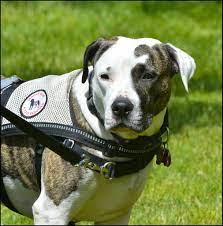Holistic Pet Health: CDB, Hemp, and what’s Best for your companion
In the dynamic realm of pet care, a captivating transformation is unfolding as holistic remedies take center stage. As dedicated pet owners, our commitment to nurturing our beloved companions is steering us to examine holistic approaches as well. This article serves as a gateway into the world of holistic remedies for pets—a realm where the interplay between physical vitality, emotional equilibrium, and natural healing converges. Holistic approach is not just about physical health. Holistic pet care extends its reach to encompass the emotional and mental dimensions of our animal companions. It is also about fostering a sense of balance, calm, and contentment that radiates from the inside out.
Today we will discuss CBD and HEMP. Before we proceed, I want to note, that I am not a veterinarian and you should always seek professional advice when it comes to choosing treatments or remedies for your pets. This article is for information purposes to help you understand these different products. The scientific research on the specific effects of CBD or HEMP in pets is still limited, and individual responses can vary.
What is HEMP? What is CBD?
Hemp, a versatile and rapidly growing plant from the Cannabis sativa species, holds a multifaceted role in various industries. Revered for its robust fibers, nutritious seeds, and health-promoting oil, hemp has been cultivated for thousands of years. Its applications span from textiles and nutrition to wellness and even construction materials. Hemp’s resurgence in popularity is due in part to its potential environmental benefits, which include its minimal need for pesticides, rapid growth cycle, and potential as a sustainable rotational crop. Central to the hemp plant’s composition is CBD, short for cannabidiol—a naturally occurring compound found within the cannabis plant. Distinct from its counterpart THC (tetrahydrocannabinol), CBD does not induce psychoactive effects or the “high” commonly associated with cannabis use. Instead, CBD interacts with the endocannabinoid system, a vital regulatory network present in both humans and animals. This interaction is believed to contribute to the modulation of various physiological processes, promoting a sense of balance and well-being.
Hemp Oil: Hemp oil is derived from the seeds of the hemp plant. It is rich in nutrients such as omega-3 and omega-6 fatty acids, vitamins, and minerals. Hemp oil is primarily used for its nutritional value and potential health benefits related to skin health, coat condition, and overall well-being. It doesn’t contain significant amounts of CBD or other cannabinoids, so it doesn’t have the same potential effects on the endocannabinoid system as CBD oil. Hemp oil is safe and often used as a dietary supplement for pets to support their health. It’s important to note that while hemp oil can provide nutritional benefits, it does not contain the active compounds found in CBD oil that may have potential therapeutic effects on conditions like anxiety, pain, and inflammation
The significance of CBD extends to its potential therapeutic applications. As a non-psychoactive compound, CBD has garnered attention for its reported benefits, including the alleviation of anxiety, pain management, and potential support for certain medical conditions. This makes CBD an intriguing avenue of exploration for individuals seeking natural alternatives to conventional treatments.
CBD Oil: CBD oil, on the other hand, is extracted from the leaves, flowers, and stalks of the hemp plant. It contains various cannabinoids, with CBD being the primary one. CBD oil is often used for its potential therapeutic effects, including reducing anxiety, managing pain, and addressing certain medical conditions in both humans and pets. However, as mentioned earlier, the research on CBD’s effects in pets is still limited.

Key Differences best illustrated in these four categories:
Composition: Hemp oil is primarily composed of nutritional components like omega fatty acids, while CBD oil contains cannabinoids such as CBD.
Intended Use: Hemp oil is often used as a nutritional supplement for pets’ overall health, skin, and coat. CBD oil is used for its potential therapeutic effects on various conditions.
Effects: Hemp oil does not provide the same potential therapeutic effects as CBD oil, which interacts with the endocannabinoid system.
Regulation: The CBD industry is still developing, and there can be variations in product quality. Look for products from reputable manufacturers that provide lab-tested CBD content.
IS HEMP THE SAME AS CBD?
Hemp oil for pets is related to CBD oil, but they are not exactly the same thing. Both hemp oil and CBD oil are derived from the hemp plant, but they have different compositions and potential uses. It’s important to understand the differences between these two products, especially when considering their use for your pets. When shopping for CBD oil for pets, make sure to choose products specifically formulated for animals and from reputable sources. CBD oil products for pets should undergo testing to ensure their quality, safety, and accurate CBD content.
CBD interacts with the endocannabinoid system and may offer benefits related to stress, inflammation, and certain medical issues.Hemp products are usually used as dietary supplements to support overall health, skin condition, and coat quality. Hemp products typically do not contain significant amounts of CBD or other cannabinoids.
FORMS OF CBD AND/OR HEMP FOR PETS
The products come in variety of forms but slightly differ, now that we know these are two separate products with two separate uses:
Hemp Oil or Hempseed Oil:
Hemp oil is rich in omega-3 and omega-6 fatty acids, making it a valuable addition to your pet’s diet. It can support healthy skin, coat, and overall well-being. Hemp oil for pets is often used as a dietary supplement and can be added to their food.
Hemp Treats and Chews: Hemp-infused treats and chews are designed to provide pets with a tasty and nutritious snack while potentially offering the benefits of hemp. These treats can promote relaxation, support joint health, and more.
Hemp-Infused Topicals: Hemp-based topicals such as balms and creams can be applied to your pet’s skin to address issues like dryness, irritation, or localized discomfort.
Hemp Collars and Accessories: Some pet accessories, like collars, harnesses, and even bedding, are made from hemp fibers. These products can be durable and eco-friendly while offering comfort to your pet.
Hemp Supplements: Hemp supplements may come in the form of capsules or powders and are designed to be easily incorporated into your pet’s diet. These supplements often contain a concentrated dose of hemp’s beneficial compounds.
Hemp-Based Toys: Some pet toys are made from hemp materials, providing a durable and environmentally friendly option for playtime.
CBD Oil or Tinctures: CBD oil is a more specific type of hemp product that contains cannabidiol. CBD oil for pets is formulated to provide controlled doses of CBD, which may offer potential benefits such as anxiety relief, pain management, and support for certain medical conditions. It comes in a liquid form that can be administered by placing drops under the pet’s tongue or mixing it with their food.
CBD Treats and Chews: These are pre-formulated treats or chews infused with a specific dosage of CBD. They offer convenience and are often flavored to be appealing to pets.
CBD Capsules/Pills: Capsules or pills contain measured amounts of CBD and can be administered with food or treats.
CBD Topicals: These are creams, balms, or salves infused with CBD. They are designed to be applied directly to the skin and can be used for targeted relief of skin conditions or localized pain.
CBD Infused Pet Food: Some pet foods are now infused with CBD, providing a convenient way to incorporate CBD into your pet’s regular diet.
CBD Sprays: CBD sprays can be sprayed directly into the pet’s mouth or added to food.
CBD Isolates and Powders: These are more concentrated forms of CBD that can be added to food or treats. They provide more flexibility in dosage control.
CBD for Inhalation: While less common for pets, there are inhalable forms of CBD, such as vaporized CBD oil. However, this method might be more challenging to administer to pets and may carry additional risks.
Why would you consider using these products
CBD has gained attention for its potential positive effects on pets. Many pet owners use CBD to help manage anxiety and stress in their pets. CBD may have a calming effect on some animals and could potentially reduce anxiety-related behaviors.
CBD has been suggested to have anti-inflammatory properties, which could make it useful for managing pain and discomfort in pets, especially those with chronic conditions or age-related issues.
There is some evidence to suggest that CBD might be effective in reducing the frequency and severity of seizures in animals, particularly in cases of epilepsy
CBD may help stimulate appetite in pets that are not eating due to illness, stress, or other reasons.
CBD has been used to alleviate nausea and vomiting in pets, which can be particularly useful for animals undergoing treatments such as chemotherapy.
CBD’s potential anti-inflammatory properties might be beneficial for pets with arthritis or joint pain.
Some pet owners have reported using CBD to address skin conditions like itching and inflammation.
There is some speculation that CBD might have positive effects on cognitive function and brain health in aging pets, although more research is needed in this area.
Hemp, on the other hand, might be preferred as a nutritional supplement for general well-being.
Always consult a veterinarian before introducing CBD to your pet’s regimen. They can provide personalized recommendations based on your pet’s health, medical history, and specific needs. Start with a low dose and monitor your pet’s response closely. Look for products specifically formulated for pets, preferably from reputable manufacturers. Be aware of potential interactions with other medications your pet might be taking. Keep in mind that while CBD has potential benefits, its effects can vary, and not all pets may respond positively. It’s important to emphasize that while there are anecdotal reports of these benefits, more rigorous scientific research is needed to fully understand the effects of CBD in pets. Additionally, individual animals may respond differently to CBD, and there’s no one-size-fits-all approach. The legality of CBD and hemp products for pets can vary by jurisdiction. Make sure to adhere to local regulations. Therefore I have added some links of available Hemp products you may want to consider.







